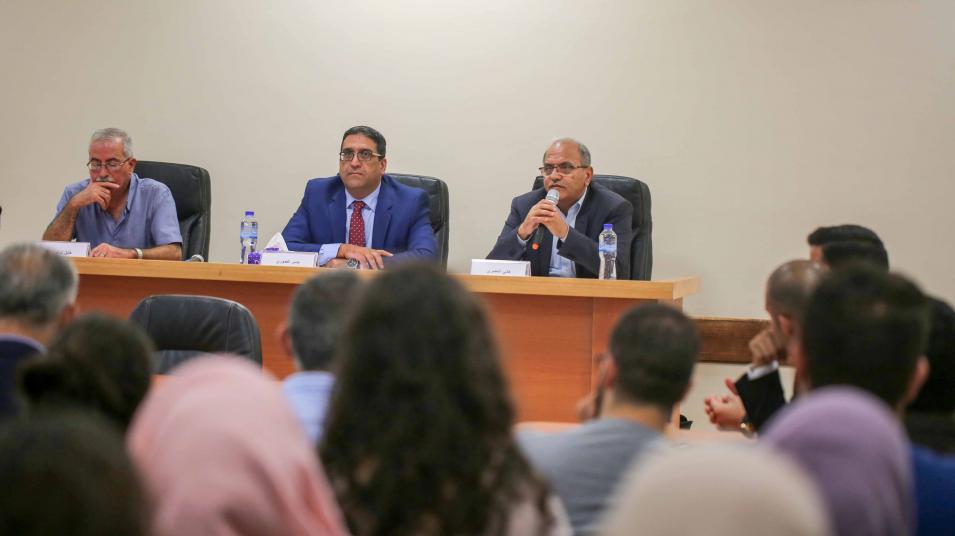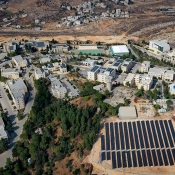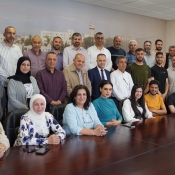Political experts explore costs, effects of Palestine political division
The Faculty of Law and Public Administration at Birzeit University and the Palestinian Center for Policy Research and Strategic Studies (MASARAT) organized, on September 26, 2017, a lecture on the cost of Palestinian division and its effects on Palestinians.
The Director of Masarat, Hani al-Masri, said that the division between Fatah and Hamas will not end if the proposed initiatives do not include political, national and democratic partnerships. “A comprehensive national dialogue is needed. Hamas should end its unilateral control on Gaza, and Fatah should end its dominance in Palestinian Authority institutions and the bodies of the Palestinian Liberation Organization (PLO).”
Masarat’s Program Director and Political Analyst, Khalil Shaheen, talked about the root causes of the Palestinian division that erupted in 2007, and its effects on the political lives of Palestinians and their freedoms. He described the division as an unconscious response to Israeli plans that aim to deepen their colonial regime for Palestinians.
Speaking about the effects of the Palestinian division on freedoms, he noted that it perpetrated violations of public freedoms and the level of democracy.
The member of the board of trustees at MASARAT, and Program Coordinator at the Developing and Supporting the Palestinian Dialogue Program alluded to the social and cultural effects of the Palestinian division. “National liberation and resistance are no longer part of the Palestinian youth’s priorities. The political division, accompanied to many political problems, has led to a decline in the developmental role of political parties in Palestine, which as a result, has led to a degradation in the youth’s national spirits, and an increase in the culture of violence.”
The Researcher and Coordinator of the Zionist Studies Project at MASARAT, Razi Nablusi, said that Palestinians in the Occupied Palestinian territories of 1948 are facing an identity dilemma. Palestinians, according to Nabulsi, cannot affect the policies in Gaza and the West Bank, and they also cannot influence the Israeli political system. “They are shunted into the margins by the two rivals - Palestinians and the Israeli Occupation - until they are smashed by the Palestinian in-fighting.”
The Dean of the Faculty of Law and Public Administration, Yaser Amouri, concluded the lecture by underscoring the importance of ending Palestinian political division, and creating a unified political system.







